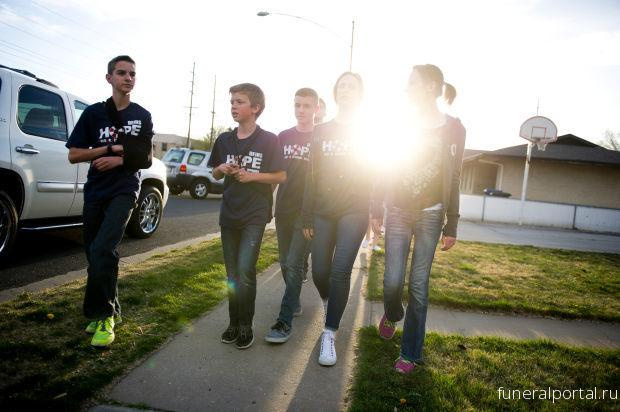By Lauren Rich Davis School District Psychologist
As we begin a new year and a new decade, many of us are contemplating our own future and those we care about. While we are recovering from the holidays and making resolutions to better ourselves, I am writing to urge you to also focus on mental health this year — your own and that of others — particularly as it relates to suicide and suicidal ideation.
I know this topic is not a particularly cheerful way to begin 2020, but as suicide — especially youth suicide — continues to impact our state, I know it is worth your focus.
While we did see a minuscule stagnation in suicide rates in 2019 (not statistically significant), we need to remain clear-headed about what our youth are experiencing. Among Utah youth aged 10–17 who took the Utah Student Health and Risk Prevention (SHARP) statewide survey in 2019:
16.4 percent responded that they had seriously considered attempting suicide in the past 12 months.
36.4% responded that they had experienced depressive symptoms.
Recent national data from the CDC shows the following:
In 2017, suicide and homicide were the second and third leading causes of death for persons aged 15–19 and 20–24, and they ranked second and fifth among persons aged 10–14.
The suicide rate for persons aged 10–14 declined from 2000 (1.5) to 2007 (0.9), and then nearly tripled from 2007 to 2017.
As parents, community members, friends, family, educators and citizens, we can help our state combat these numbers. A large part of reducing suicide rates is ensuring our populace is informed about suicide warning signs and comfortable speaking about suicide with others.
This topic can feel very overwhelming and frightening to talk about, but it is OK for us to ask critical questions like “Are you thinking about suicide?” or “Are you considering hurting yourself?” Oftentimes, that action can be the conversation that helps someone get the life-saving help they need.
Typically, youth who are considering suicide show warning signs of distress. It is important to take these signs seriously:
Suicidal threats, both direct and indirect, like “I wish I could fall asleep and never wake up,” “I am going to kill myself” or “I wish my life was over.”
Suicidal notes, posting plans, including on social media.
Giving away possessions or making other final arrangements.
Thinking often about or being preoccupied with death.
Changes in appearance, behavior, thoughts/feelings.
Prior suicidal behavior.
Emotional distress.
Under no circumstances should you ever promise to keep these signs a secret. If some of these signs ring true for someone you know, there are more helpful actions you can take immediately and other things you can do long-term.
Immediately, you should do the following:
Stay calm.
Ask the youth or person if they are thinking about suicide. Be direct: “Are you thinking of suicide?”
Communicate your concern for their well-being and safety without being accusatory.
Engage in active listening with them.
Remind them that they will not feel this way forever and that there is help available for them.
Hold judgment.
Make sure the youth or person is safe (and for youth, under constant supervision). Do not leave a suicidal youth alone, and be sure to remove all means for self-harm.
Get help. Make sure the youth or person gets the help they need, either through community mental health resources or the youth’s school, as soon as possible.
Support doesn’t stop there. In the coming weeks, months, and beyond, you can keep helping:
Increase protective factors like family and peer support, school/community connectedness, healthy problem-solving skills, and access to effective mental health services.
Know who your school-based supports are, such as the school psychologist, school counselor, or school crisis teams.
Promote environments where both youth and adults feel comfortable discussing their mental health and accessing help when needed.
In knowing the warning signs and how to act when needed, we can all do more to help each other this coming year.
Lauren is a school psychologist and related services supervisor for Davis School District. She is also currently serving as the president for the Utah Association of School Psychologists.











